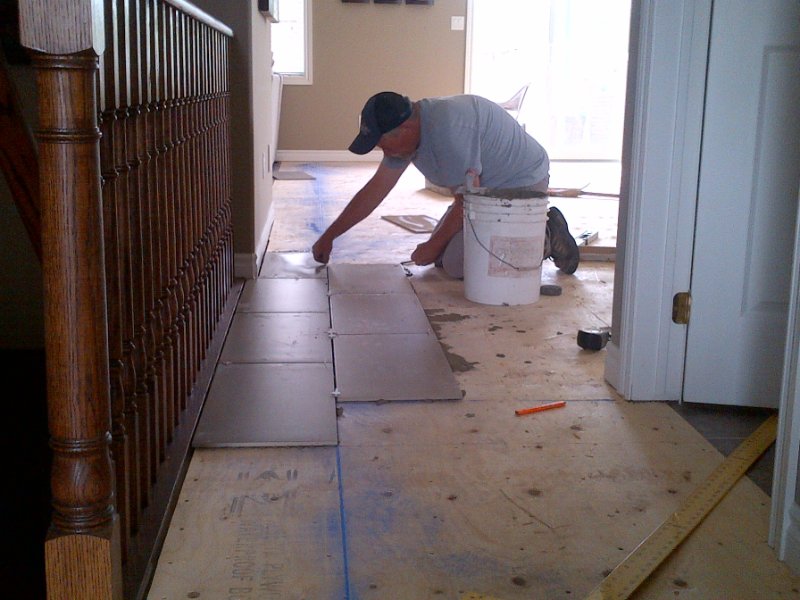|
10/2/2019 0 Comments Estimating home improvements To be successful, every home improvement project should be based on sound planning. After you decide exactly what you want to do, try to estimate your costs as accurately as possible. There are an abundance of books, magazines and TV shows where you can get some great ideas. Making a rough sketch can be helpful in working up your materials list.
Shop around for the best prices, and watch for sales. Try to visualize the stages of your project, and make sure you've listed every item, no matter how small. When you're certain you haven't forgotten anything, add 10 percent for wastage; and allow yourself double the time that you think you really need! Home improvement magazines offer a wealth of materials knowledge; manufacturers' brochures can also help you compare materials, and are readily available for free at building supply stores. Carefully weigh the differences between standard materials and pre-fabricated units. Products designed for installation by the home-owner can often be installed quicker and less expensively, but might not afford the same results as traditional materials. On the other hand, the do-it-yourself products are usually designed to be installed without a lot of specialized knowledge or tools, and could make the difference between getting the job done or not. The Internet is measured in endless opportunities, if you know how to make effective searches in the right places - keeping in mind that almost anyone can publish almost anything on the web. (You're reading this, aren't you?) Financing your project... unless it's a very small project, you could be arranging a loan - and you should shop around for a loan like you would for anything else. Compare the costs against the advantages of personal, home-equity and mortgage loans, as well as lines of credit. Government grants are periodically available for improvements to energy efficiency and sometimes other projects. Do you need a contractor? Carefully consider your project, and unless you're an accomplished renovator, you'll find that contracting some of the work is easier (and sometimes even cheaper, in the long run) than doing it yourself. Word of mouth is the best reference for a contractor. If you don't know someone who's had similar work completed by a contractor, then ask your bidders to provide you with references. Call their previous clients and ask them about their level of satisfaction, before you accept any bid. Ask about price, punctuality, workmanship and quality of materials. Is your contractor licensed? Is he insured? Bonded? Does the Better Business Bureau have any record of complaints against him? How long has he been in business? (Most new contractors are out of business within the first three years.) Ask for a detailed contract, including a full job description, material specifications, start and finish dates, permit numbers, clean-up, on-site behaviour, change-order clause and payment schedules. Agree how disagreements will be handled before you begin the project. Planned arbitration will reduce the time, effort and energy spent on disputes. I suggest that you observe the work regularly to minimize errors, ommissions and miscommunications. A healthy interaction with your contractor(s) will make the job go smoother! Suggested reading: www.amazon.ca Be Your Own House Contractor, 2012, by Carl Heldmann What Your Contractor Can't Tell You, 2008, by Amy Johnson Home Improvement: Six Steps to Saving Money, by Lynnette Hartwig
0 Comments
Leave a Reply. |
AuthorGil Strachan is a professional home inspector, representing Electrospec Home Inspection Services in east-central Ontario since 1994. CategoriesAll Appliances Buying And Selling Cooling Electrical Environmental Exterior Health And Safety Heating Home Improvement Home Inspection Insulation Insurance Interior Plumbing Roofing Special Structure Archives
January 2024
|



